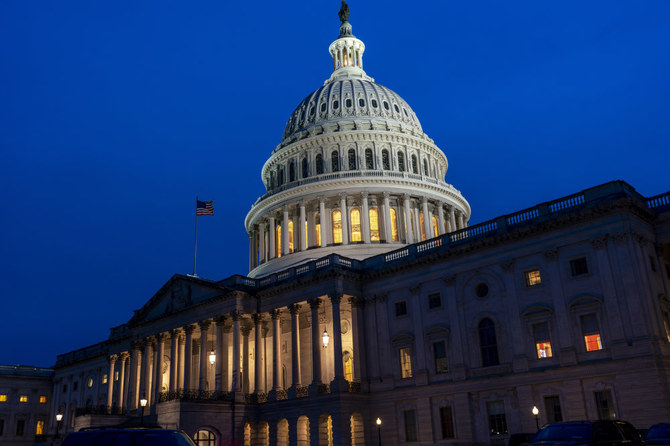
It is inevitable that, as the UK and EU edge closer to the home straight of Brexit negotiations, nothing about this process is straightforward. It is close to impossible to separate the wheat from the chaff, beliefs from facts, strategy from tactics, the greater good from opportunism. And all is ravaged by the divisions within Britain’s Conservative government and its inability to work coherently and effectively toward the least damaging outcome for the country. If the self-obsessed Westminster village can’t give an answer, it might be time to go back to the populace and ask for its verdict on the future of relations between the British and their neighbors across the Channel (and, not unimportantly, across the Irish Sea).
If the entire toil of forming the EU project was taxing yet rewarding, a departure from it by a single country, as important as that country may be, is proving to be even more draining, with no benefits in sight. Once again, negotiations between the UK and the EU have become an exercise in managing the Conservative Party, preventing it from disintegrating and with it Theresa May’s premiership and government. Add to this an opposition that is as almost as directionless about Brexit as the government, and it becomes clear that Britain is in a mess and heading for a political crisis at home and with Europe.
In the two years since the Brexit referendum, not much has changed in the prism through which its supporters or opponents view the most fundamental issues at stake. The discourse has not evolved — it has become more divisive and revealed that the Brexiters don’t have the faintest idea of how to conduct Britain’s departure without inflicting huge damage on the country, while those who are against it are far from having an effective and united strategy on how to stop this from happening.
The extreme Brexiters are challenging May’s Chequers plan, and increasingly her premiership. They are mainly members of the Conservative Party who are not prepared to accept any compromise that involves elements of remain by stealth. For them, this would be both an admission that a complete separation from Europe would harm the interests of the country, as well as a settlement that would make it easier for their opponents to erode Brexit with a view to returning to the European fold in the longer run. The combination of right-wing nationalists who talk about reclaiming total sovereignty from Brussels, and opportunists such as Boris Johnson who see derailing any deal as their path to power, again demonstrates that Brexit is more of a party management issue than a national project.
A no-deal Brexit [jeopardizes] the futures of an estimated 3.8 million EU citizens who reside in the UK, and 900,000 UK citizens living in EU countries
Yossi Mekelberg
Ideologically or opportunistically, both continue to ignore the warnings of the dangers of leaving the EU without an agreement. This week it was the turn of the Governor of the Bank of England, Mark Carney, to warn that a disorderly no-deal Brexit could crash house prices by up to 33 percent and send the economy into another nosedive similar to that of 2008. Carney’s warning was, by his own admission, a worst-case scenario. Yet it is a possible one, which would see mortgage rates spiraling, a further devaluing of the pound, soaring inflation, and countless homeowners left in negative equity.
Moreover, a no-deal Brexit would inject more uncertainty into the life of EU citizens in the UK and British nationals in Europe — a situation that, as well as being immoral, will end in yet more people with much-needed skills leaving the British Isles, either of their own volition or by deportation. The futures of an estimated 3.8 million EU citizens who reside in the UK, and 900,000 UK citizens living in EU countries, is at stake. Many have already left or are planning to, fearing for their future. A total exodus due to a no-deal Brexit is unthinkable but, as long as there is no agreement, both UK-based EU citizens and those who employ them are stuck in an unhealthy limbo.
Bit by bit it also becomes apparent that, as in all policy-making, the devil is in the detail. A no-deal outcome threatens to affect the daily lives of British people, from the more mundane issues of needing an international driving licence for European trips or being charged for mobile phone roaming, to the existential horrors of losing their home or job or being forced to leave a country where they may have resided for decades.
However, as things stand now, the Brexit ship is sailing on with no obvious captain at the helm, wobbling like a nutshell in a rough sea with no clear direction, succumbing to the political elements it encounters. And this is taking place at one of the most important junctures of modern history, when democratic and liberal Europe is once again under threat from the rise of populist nationalism. Europe needs the UK at the heart of it, and vice-versa, to continue the journey of fortifying peace, stability and prosperity based on respect for the universal values of human rights. They need each other in standing up to the merchants of hate and division from within and from without.
It is time for the British political leadership — government and opposition alike — to put the country’s interests before that of their parties. In the absence of any such vision or courage, and in order to do right by the country and the rest of the world, the issue must be handed back to the people, for them to decide. Another referendum is not an ideal option and carries with it the risk of further discord. However, an honest leadership should outline to the British citizens what is the best they can get out of a Brexit deal, and what are the hazards of leaving with no deal at all. It would then be for the electorate to express their preference. At least this would be a decision based on greater knowledge of what Brexit means, which was certainly not the case when they voted for it the first time round.
Yossi Mekelberg is professor of international relations at Regent’s University London, where he is head of the International Relations and Social Sciences Program. He is also an associate fellow of the MENA Program at Chatham House. He is a regular contributor to the international written and electronic media. Twitter: @YMekelberg












